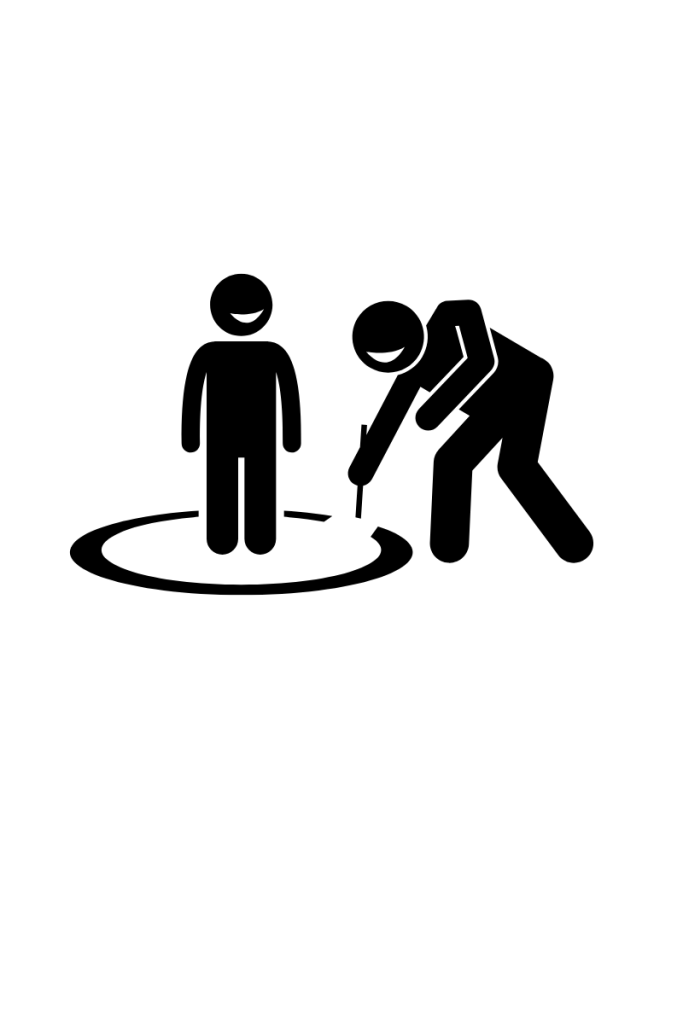
Meet Jane Doe. Jane is like many of us—juggling a busy life filled with family commitments, work, friendships, church, and neighborhood relationships. Her life is full, and she has a great support network of people who love her and are invested in her well-being. It sounds perfect, right? But here’s the catch: some of the people in Jane’s network have a hard time minding their own business. They often insert themselves into matters that don’t concern them, crossing boundaries that, while maybe unspoken, are very real.
We’ve all been there—feeling overwhelmed because someone, with the best of intentions, tries to help or offer advice that wasn’t requested. It’s frustrating and, without boundaries, it can leave us feeling drained and even resentful.
The Importance of Boundaries
Let’s start with what boundaries actually are. Boundaries are the expectations and limits we set in relationships to feel safe and comfortable. They’re not about controlling others but about protecting our emotional, mental, and physical well-being. Think of boundaries as the lines on the road—they keep the traffic flowing smoothly and prevent crashes.
In our relationships, boundaries do the same thing. When we clearly communicate what’s acceptable and what’s not, we reduce misunderstandings and conflicts. Without them, it’s easy to feel taken advantage of or overwhelmed. When people respect our boundaries, life feels more harmonious, and our interactions are transparent because everyone knows what to expect.
The Different Types of Boundaries
Most people know about time or moral boundaries—not letting work invade family time or maintaining integrity in decision-making. But boundaries stretch far beyond those categories. Jane Doe, might not realize that she needs emotional, spiritual, material, and even sexual boundaries with different people in her life.
Unfortunately, we often don’t think about this until frustration hits—maybe someone always borrows something without asking, or a friend keeps bringing up sensitive topics you’d rather not discuss. Knowing where you stand with each of these areas can make your relationships more supportive and productive.
It’s not about building walls—it’s about having clear lines that allow for healthy and respectful interactions.

Tailoring Boundaries to Different Relationships
The thing about boundaries is that they aren’t one-size-fits-all. Jane Doe might have different boundaries with her coworkers than with her church friends, and that’s completely normal. At work, she might need firmer boundaries about her time and personal space, whereas with family, those boundaries might be more flexible.
Some relationships are easier than others. Certain people are naturally respectful, and you don’t have to define your boundaries explicitly. With others, though, you need to set clear, firm limits—like the bumpers at a bowling alley—to protect yourself from the damage they might unintentionally cause.
Boundaries Are a Two-Way Street
It’s not just about setting boundaries for others; we also need to respect the boundaries that others set for us. This can be harder than it sounds. Jane Doe might be frustrated with a friend who is overly involved in her personal life but might not realize that she’s doing the same thing in someone else’s life.
Respecting boundaries goes both ways, and it requires introspection. We can’t expect people to stay in their lane if we’re not willing to stay in ours. This kind of reflection is key in any healthy relationship.

How to Know When You Need Boundaries
So how do you know if you need to set some boundaries or if you’re the one who’s pushing someone else’s? There are a few tell-tale signs that it’s time to get some clarity in your relationships:
Do you frequently feel resentment toward others? This is a major sign that someone is crossing your boundaries.
Do you struggle to say no, even when it’s inconvenient for you?
Do you often go out of your way to please others, even though deep down you don’t want to?
Do some relationships feel one-sided, where you’re doing all the giving?
Do you feel used or disrespected?
Do you avoid conflict because you’re afraid of rejection or backlash?
If you find yourself nodding along to any of these questions, it’s time to take a step back and set some clear boundaries.
Balancing Boundaries with a Life of Service
Now, here’s a question you might wrestle with: How do I set boundaries while living the selfless, other-focused life that Jesus asks of me? At first glance, it might seem like setting boundaries contradicts living a life of service and sacrifice. But in reality, the two can go hand-in-hand.
Jesus’ call to lay down our lives for others is about selfless love, not abandoning our well-being. He showed us how to serve others without burning out. Jesus himself set boundaries. He often withdrew to rest and pray, turning down requests when it wasn’t time to act. He didn’t allow others’ expectations to derail His purpose.
Boundaries, when set from a place of love and self-respect, allow us to serve others in the way God intends. We can’t pour from an empty cup. Taking care of ourselves enables us to love and serve from a place of abundance rather than exhaustion or resentment.
Setting Boundaries Is Loving
Setting boundaries isn’t about being selfish. It’s about stewardship—taking care of the body, mind, and soul that God entrusted to us. And sometimes, the most loving thing we can do for someone is to say no. No to overextending ourselves. No to disrespect. No to behavior that causes harm.
By setting boundaries, we create space for healthier, more fulfilling relationships. We can serve others with joy and intention, knowing that we’re giving from a place of strength rather than obligation. So, if you find yourself feeling overwhelmed it might be time to stop and consider—what boundaries do you need to set to protect your peace and well-being?
In the end, boundaries allow us to love others—and ourselves—more fully. And that’s exactly what we’re called to do.


